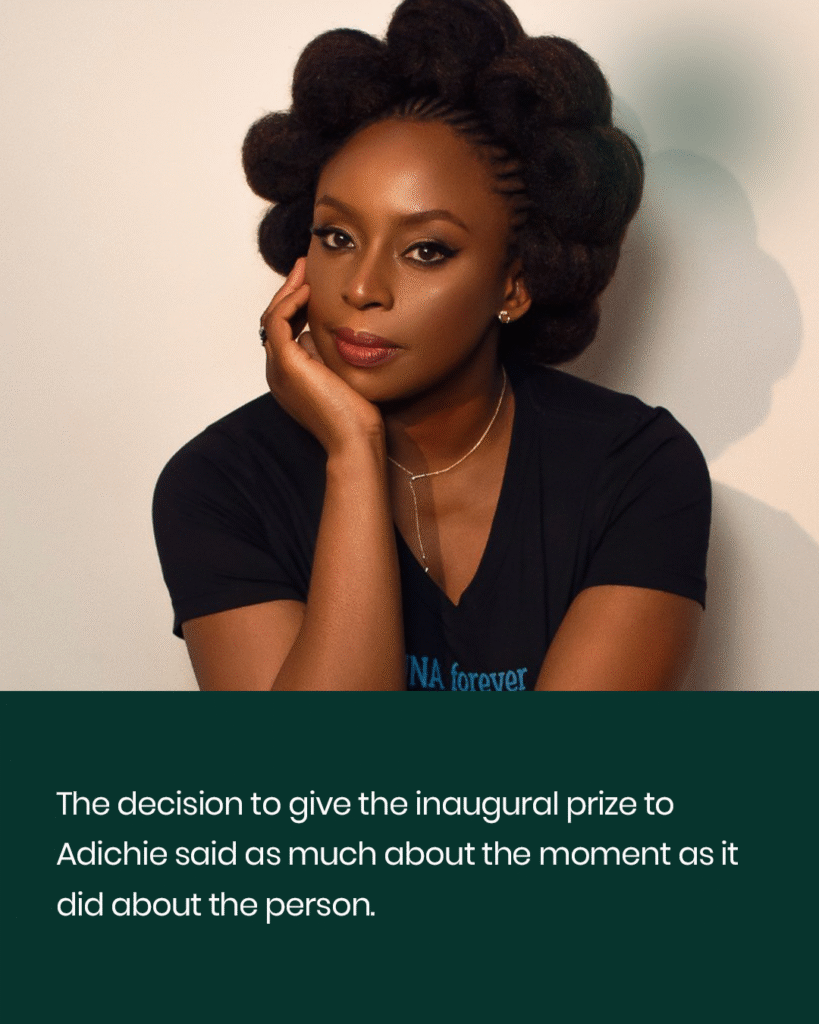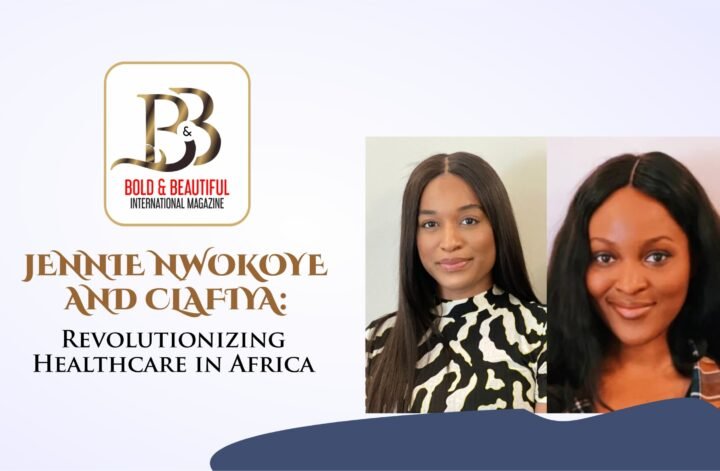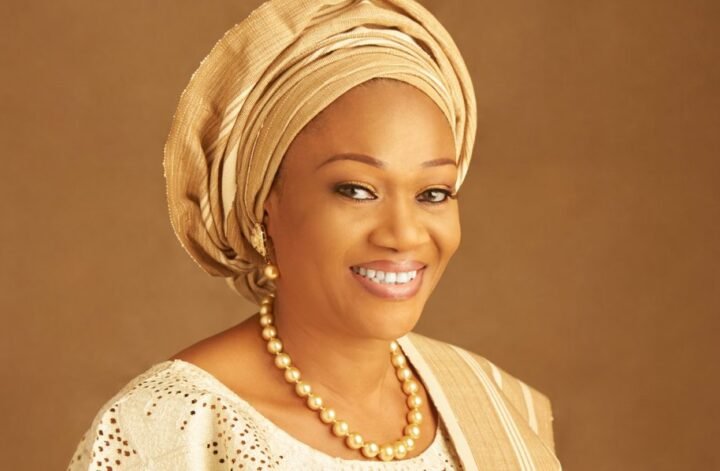Chimamanda Ngozi Adichie accepted the first Felix Jud Prize for Defiant Thinking at the opening of the 15th Harbourfront Literature Festival in Hamburg. The new prize honours writers and public intellectuals who defend free thought and public debate.
The award was presented on 20 September 2025 in the Grand Hall of the Elbphilharmonie. Festival organisers described the prize as a tribute to the spirit of Felix Jud, the Hamburg bookseller who used his bookshop as a refuge for dissent and a bastion of literary freedom.

The decision to give the inaugural prize to Adichie said as much about the moment as it did about the person. The jury recognised an author whose essays, novels and speeches have placed questions of equality, speech and power at the centre of public debate. Her work reaches global audiences and enters conversations far beyond the book page.
Adichie used the platform to frame defiant thinking as a moral practice rather than a posture. She spoke of her preference for the word defiant over resistant and recalled Felix Jud’s refusal to erase his name. She argued that defiance in thought is not theatrical but rooted in the sustained work of reading, questioning and storytelling.
Her latest novel, Dream Count, and her long record of essays and speeches were part of the jury’s calculus. Reviewers and readers have already treated Dream Count as a major literary event this year, a work that tests empathy and public courage while interrogating structures of power. That contemporary relevance mattered to the prize committee.

The prize has symbolic weight. Felix Jud opened a bookshop in 1923 and used it as a bulwark against censorship and conformity. The association that funds the prize and the Harbourfront festival positioned Adichie as an heir to that tradition: a writer who insists that literature can shape civic life and defend the contested space of public truth.
The ceremony gathered a small constellation of figures who underline the award’s civic frame: speakers included Dr Auma Obama and Hamburg’s cultural senator. The festival opened with a programme that mixed reading and debate, signalling that the organisers intended the prize to catalyse conversation, not merely to decorate a single author.
This moment matters for global publishing and for African letters. European cultural institutions have long exported recognition without listening first. By making Adichie the first recipient, the prize flips the script. It legitimises a sustained African voice of dissent at a European podium and signals that questions raised in Lagos, Enugu and Accra carry the same civic urgency as those asked in Berlin or London.
Adichie’s speech mixed personal memory and political clarity. She spoke of growing up under military rule in Nigeria, of learning early to question authority, and of how books taught her the practice of empathy. She framed defiance as a discipline that requires both courage and care. Those lines landed hard in a room whose architecture itself invokes public resonance.
Awarding a prize for defiant thinking in 2025 is an act that addresses current fault lines: shrinking civic space, the weaponisation of culture, and an appetite in many places to flatten disagreement into silence. The Felix Jud Prize wants to reward the opposite impulse. It wants to name and support those who refuse to make the abnormal normal.
For Adichie, the prize extends an arc that began with her early fiction and matured in public essays and speeches. Her influence is measurable across university syllabuses, popular music and public policy debates. The Felix Jud Prize recognises that reach and signals that public intellectuals who combine literary craft with civic engagement still matter.

The larger question now is how institutions will sustain this moment. Prizes matter only when they create networks of support, defence and translation. If the Felix Jud Prize becomes a durable platform it could seed fellowships, translations and legal aid for endangered writers. That would honour the spirit of Jud and match the scale of Adichie’s own commitments.
Chimamanda Ngozi Adichie left Hamburg with a prize named after a bookseller who trusted literature in dangerous times and with a public charge to keep thinking defiantly. The award formalises a simple claim: literary courage changes the terms of public life. For readers, writers and cultural institutions, this week in the Elbphilharmonie is a reminder that defending ideas matters as much as creating them.






1 comment
I regard something really interesting about your web blog so I saved to fav.